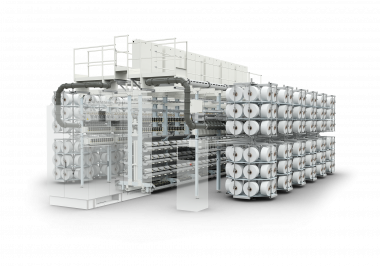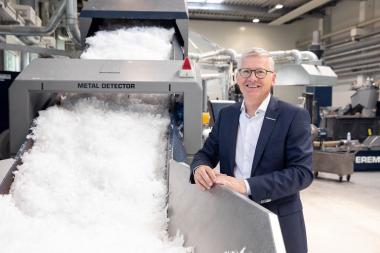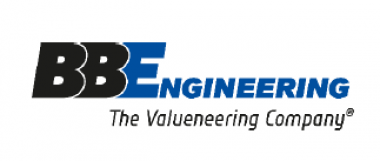CARBIOS wins "So French So Innovative" award
CARBIOS was awarded 1st prize in the "So French So Innovative" Award organized by Business France, the Hong Kong Committee of French Foreign Trade Advisors (CCEF), La French Tech and its partners at InnoEX 2024 (taking place in Hong Kong from 13 to 16 April). The award recognizes French innovation to promote and support French Tech in the Asia-Pacific region. The final awards ceremony was held on the French pavilion in the presence of members of the Hong Kong Government and Christile Drulhe, Consul General of France in Hong Kong.
Emmanuel Ladent, CEO of CARBIOS: "Asia-Pacific is a key market for our PET biorecycling solution, and the 'So French So Innovative' Award is a recognition that supports CARBIOS’ prospection and commercial deployment in the region. CARBIOS' technology is generating a lot of interest, leading to promising discussions and the exploration of commercial agreements to support the sustainability commitments and international operations of current and future partners."
CARBIOS' global presence
In a dynamic global PET market, where the share of recycled PET will increase, CARBIOS' ambition is to become a leading r-PET player by 2035. CARBIOS has extended its international reach to boost its commercial deployment worldwide. Teams in place in key markets are dedicated to identifying business opportunities and establishing commercial partnerships for PET biorecycling technology, with first agreements expected in 2024. To date, CARBIOS is represented in three regions: Europe, North America (including Canada) and Asia (China, Japan, Korea, Singapore, Taiwan, and soon India).
CARBIOS




























